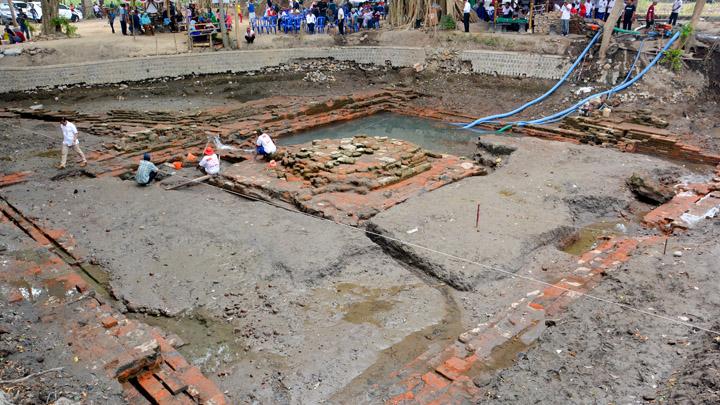
TEMPO.CO, Jakarta - After the Maghrib (sundown) call to prayer, spectators began to flood the one-hectare open yard inside the Lirboyo Pesantren (Islamic boarding school) complex in Kediri, East Java. That day, the third Saturday of April, roads leading to the school were packed. Street vendors and vehicles crowded roadsides, spilling over into street lanes.
Trucks and pickups were lined in a 500-meter radius on street sides. These are the vehicles that had brought in the fighters from various regions in East Java, who would soon compete in the most prestigious fighting competition held at Lirboyo Pesantren: Pencak Dor. One by one, youths from different martial arts schools entered the school's north entrance open only to competing fighters, while the middle entrance was assigned for invitees and the festival's organizing committee.
At exactly 7 pm, after the Isha (evening) call to prayer, the sound of jidor (drums) was heard. The music urged would-be spectators still outside the school's complex to quickly enter and choose their spot around the arena. Religious music, accompanied by the jidor, signaled the approaching start of Pencak Dor. In the blink of an eye, the area around the arena was divided into south and north corners, with each occupied by scores of youths eager to compete.
One by one, fighters from each corner moved to the center of the platform. The referee only allowed a maximum of five minutes for each fight. "Every fight is made up of three rounds," said Badrul Huda Zainal Abidin, known as GusBidin, a Lirboyo Pesantren official who holds the license to organize Pencak Dor.
Similar to mixed martial arts (MMA) fights often seen on television, fighters in Pencak Dor are not equipped with safety gear, with the exception of mouthguards. Often, tens of fighters from one martial arts school would take turns using a single mouthguard. "I once lost a tooth when fighting in the opening event," said ImamSubawi, a resident of Lirboyo village of who has now retired from competition.
According to Bernis, member of the committee, Pencak Dor does not have many rules. Fighters are only prohibited from pulling their opponent's hair, attacking someone who is already on the ground, and spitting or swearing. "The principle is that fights have to be honorable," he said.
After shaking hands, the martial artists immediately set to work. Most fights went swiftly because participants were already eager to strike. Within the five minutes, they were free to punch, kick and body slam using any style. Punching an opponent in the face is also allowed in Pencak Dor, although this move has caused many fighters to bleed profusely. If a fighter is in a worrying condition, the referee, who has absolute authority, will stop a fight even before the third round.
In Pencak Dor, fighters are paired depending on the wishes of the fighters themselves and their promoters, which is why one often sees martial artists of different sizes competing. If he is willing, a fighter with a small frame may compete against a much larger person. Fighters are considered capable of measuring their own abilities, which is why this rule is put in place.
Even so, the rule is often violated by promotors whose interest is, of course, to protect their fighters. Promotors will replace a fighter if he is faced with an unequal opponent. This is how the promotors arrange fights, allowing fighters to choose appropriate opponents with the aim to win.
Although Pencak Dor is open to public and participants are free to choose their opponents, not all fighters can compete in the festival. The committee will prioritize fighters who are members of a martial arts school to allow smoother management.























